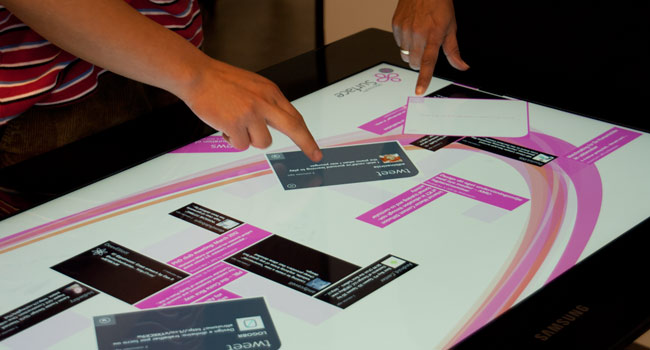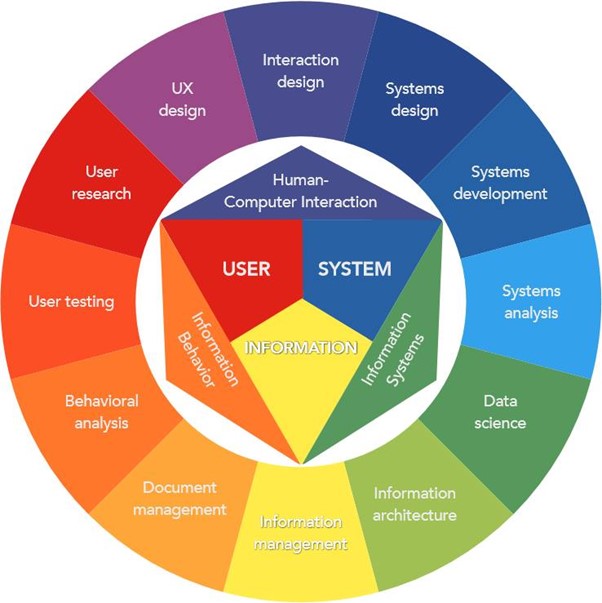

In the Master’s programme in Information Studies you will learn about the design, development, and evaluation of IT systems with a particular emphasis on the relations and interactions between people and IT systems using a data-driven approach to study and inform decisions.
Reasons you should choose this programme
Investigate and understand user needs and behaviours Analyse and visualise data Design and develop IT systems and components2-year education English

In the Master’s programme in Information Studies you will learn about the design, development, and evaluation of IT systems with a particular emphasis on the relations and interactions between people and IT systems using a data-driven approach to study and inform decisions.
Reasons you should choose this programme
Investigate and understand user needs and behaviours Analyse and visualise data Design and develop IT systems and components2-year education English
Tine Bæk Kristensen, student at Information Studies
Are you interested in how people use Information and Communication Technology (ICT)? Do you think the relationship between people and IT is exciting? Do you find it interesting how to develop, design and construct ICT systems and ICT solutions in a beneficial and sustainable way? Then Information Studies is just right for you!
The 2-year Master’s program in Information Studies (cand.it.) focuses on the data-driven design, development, and evaluation of IT systems with a particular emphasis on how people interact with information, IT systems, and each other. The Information Studies program will guide you through the different phases of data-driven design, from user research to data analysis and visualisation, ending with the design and development of successful IT-based solutions.
Any aspect of a website, app, software, or other IT product that doesn’t consider the user’s needs is ultimately doomed to fail. A huge part of successful design of IT products is understanding your target audience, their characteristics, attitudes, behaviour, needs and context using qualitative and quantitative methods. At information studies you will be introduced to the relevant, state-of-the-art methods and practises for doing user research.
To achieve the best results, data-driven design decisions should be based on a thorough and focused analysis of the collected user research data as well as visualisation of the insights derived from it. You will acquire foundational competencies in the use of methods and tools for descriptive and predictive analytics to enable data-driven decision making in your future user analyses and projects.
All the insights from user research need to be translated into design decisions that will impact the users of the IT product in a positive way. You will learn about development methods (such as agile methods and prototyping as core tools), design methods (such as storyboards, flowcharts and wireframes), and methods for user testing (such as eye-tracking and usability testing).

At its core, Information Studies focuses on the different combinations of three elements: users, systems and information, as shown in the circular diagram below. As a result, teaching in the Information Studies program combines a variety of different fields and students are encouraged to further specialise themselves through their project reports, elective, internship, and Master’s thesis.
Most of the teaching is built up around one of the three core areas: information behaviour, human-computer interaction, and information systems. Throughout the Information Studies program, you will learn about theories and methods from the different research areas displayed in the outer ring, such as information architecture, systems design, user research, behavioural analysis and data-driven design.

The Information Studies program follows the problem-based learning approach, which means that all teaching is organised around real-world cases and problems. Every semester students focus on a semester-spanning project where you research, design, develop, and evaluate solutions to real-world problems related to the use of IT systems in companies and organisations together with an external or internal client. This way, students develop a strong portfolio of project work that documents their ability to engage with and solve problems related to the many ways people interact with IT systems in different contexts. Through your semester projects and the different elective courses, you have the opportunity to specialise in specific organisations, domains, and contexts.
In the 2-year Master’s program in Information Studies (cand.it.) you will first be introduced to the field of Information Studies, its theories and methods and how to understand the context and needs of users. You and your group will also do your first semester project in this first semester. The second semester delves into the details of how to plan and design viable and sustainable IT-based solutions, and allows you to specialise through elective courses and a substantial semester project. In the third semester you can either do an internship at a company or organisation or dig into a theoretical problem, and in the fourth semester you will be working on your master’s thesis.
Master's thesis (30 ects)